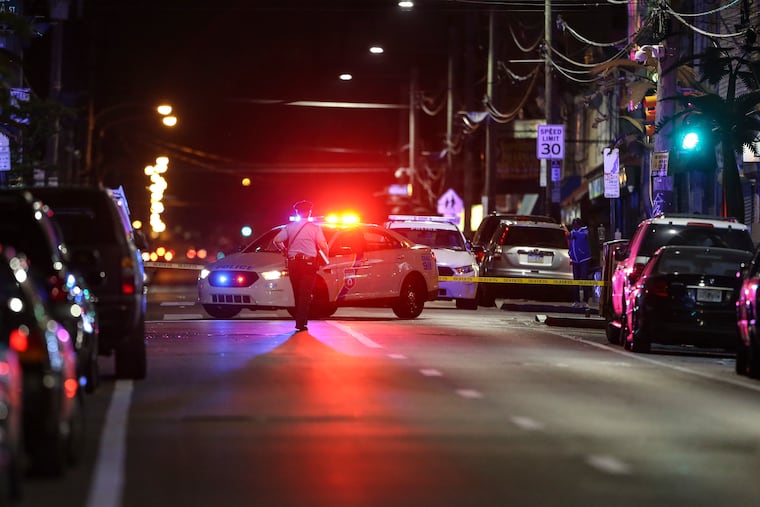Gun violence must still be a priority for Pa. and Philadelphia | Editorial
When five people are shot every day on average, every delay in implementation of life saving programs is a tragedy.

The summer of 2020 opened with tragedy. In the midst of a pandemic that is claiming the lives of a disproportionate number of Black Philadelphians, a spike in gun violence has left more than 200 victims — and at least 35 lives lost — since the beginning of June. Already this year, at least 75 Black children and teenagers were shot — including seven who lost their lives.
Philadelphia has lost about 1,000 of its Black residents to coronavirus and gun violence alone this year — more than double the number of white Philadelphians who were victims to these two causes of death.
There is no simple explanation for the 27% increase in the number of shooting victims and nearly 30% increase in homicides so far this year, compared with last year. The overall number of crime incidents is down — and so is overall violent crime. This peculiar dynamic is not unique to Philly. In cities all over the country, homicides and gun violence are rising while violent crime is low or even decreasing. Criminal justice experts warn about making long-term conclusions from year-to-year comparisons, but right now the city is without a doubt in crisis.
Philadelphia is at the center of a storm of factors that encourage gun violence: warm weather, economic crisis, curtailed social services, stress and uncertainty, and many people — including young people — without formal structures like work, school, or summer programs.
Added to these conditions are guns. Many guns. According to the Pennsylvania State Police, the number of background checks conducted before firearm purchase statewide was a staggering 317,319 between April and June — an increase of 100,000 checks compared with these months last year. Of those, only 5,801 were denied.
More guns lead to more homicides. And yet, the Republican-controlled state legislature refuses to consider gun-control measures that have proven efficacy — and shouldn’t change anything in the life of responsible gun owners. These bills include requirements of safe storage of firearms when not in use, closing loopholes in the background-check system, and a bipartisan introduced “red-flag law’ to allow courts to disarm people who are a danger to themselves or others. None got a vote.
One of the most effective gun-control measures — including preventing diversion of guns to the illicit market — is requiring a permit to purchase a firearm. That has also been proposed but never got out of committee for consideration. Instead of these measures, the state House passed a bill to exempt gun stores from emergency orders of the governor during crises like COVID-19.
State legislators who stand as a barrier to lifesaving measures should not be reelected.
There is more that could be done in the city as well. Gun violence is preventable — and it’s not all up to the police. Unfortunately, Philadelphia is disinvesting in such non-police approaches.
The budget passed by Council reduced Office of Violence Prevention funding by $1.4 million. A transitional jobs program, an effort that has shown success in Chicago, that was in the budget before COVID-19 hit was also scrapped. In contrast, Washington‘s council diverted $9.6 million from the police budget to violence prevention, victim services, and restorative justice programs.
» READ MORE: Important lessons for Philadelphia from Chicago’s three-year decline in gun violence | Editorial
The city has been planning to launch a Group Violence Intervention, formerly known as focused deterrence, in April — a plan derailed by the coronavirus pandemic and now will start in mid-July at the earliest. Critical elements of the strategy, such as how those most at risk will be identified and how they will be approached, are still undetermined. The last focused deterrence effort by the city was criticized for lacking investment in social services and only further criminalizing and surveilling Black Philadelphians, and there are valid concerns that this time won’t be different enough.
Other programs — such as the Community Crisis Intervention Program, which deploys violence interrupters on the streets — continue to suffer from lack of evaluation.
Four months in, the pandemic can no longer be an excuse to delay scaling up the response to the other public health and racial justice crises that the city is facing. Getting all the details of any program right is critical for success, but when it comes to gun violence, so is urgency. When five people are shot every day on average, any delay in implementation of lifesaving programs is a tragedy.